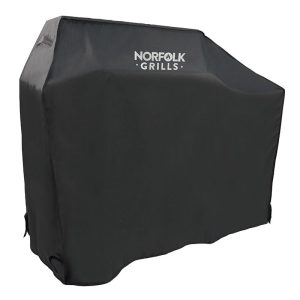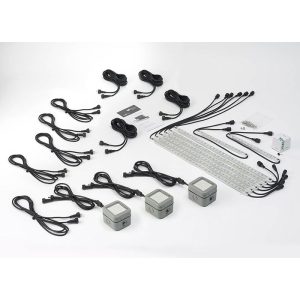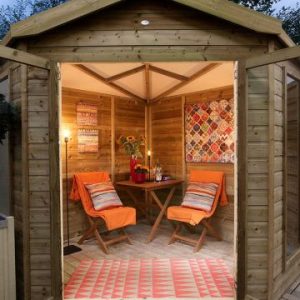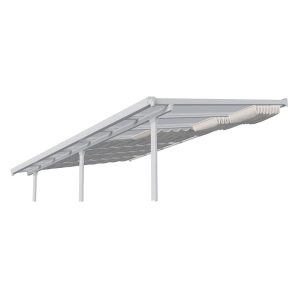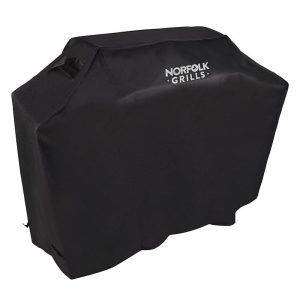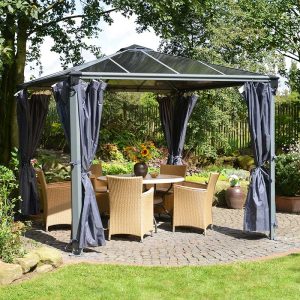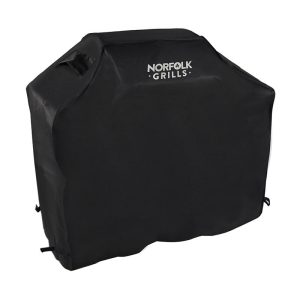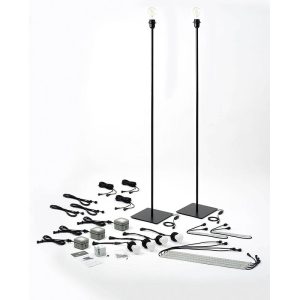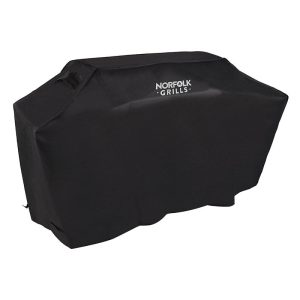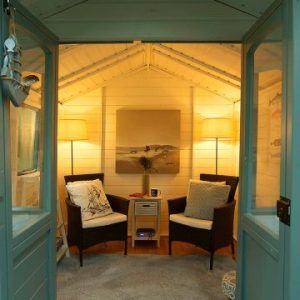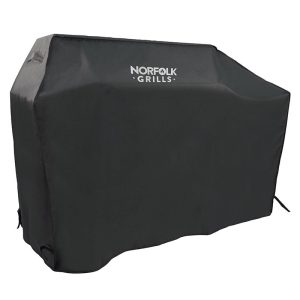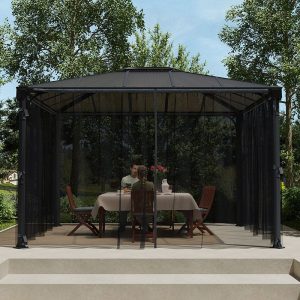The tailored Norfolk Grills Vista 300 BBQ Cover is crafted to shield the Norfolk Grills Vista 300 Gas BBQ Grill when not in operation. This personalized grill cover is constructed from durable polyester material and is available in an elegant black hue, adorned with sleek Norfolk Grills logos. Cleaning and maintenance can be effortlessly done with a moistened cloth.
Specifically engineered to furnish the Vista 300 BBQ with waterproof shelter and prevent the ingress of dust and debris, this indispensable BBQ accessory showcases a mesh air vent for enhancing storage conditions. Prior to utilizing this BBQ cover, please ensure that the BBQ has cooled down and dried.
Complimentary delivery service is extended to the majority of addresses within the UK.
Constructed from resilient polyester material
Elegant black color
Chic Norfolk Grills logo
Mesh air vent
Waterproof
Free delivery for most UK addresses















